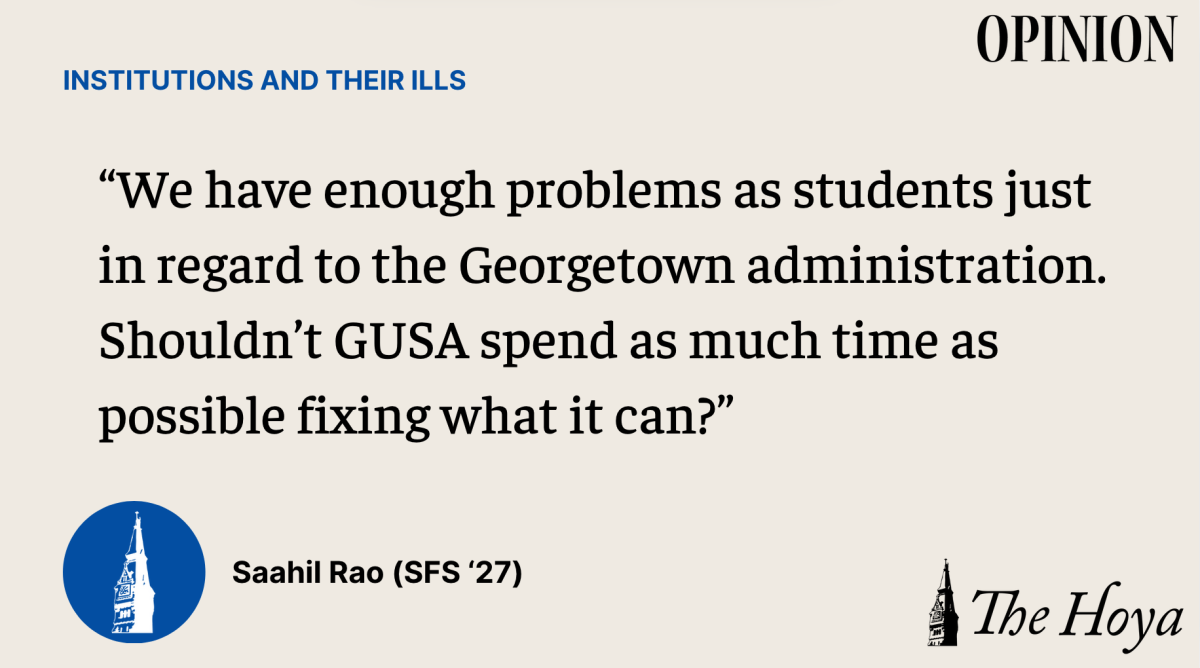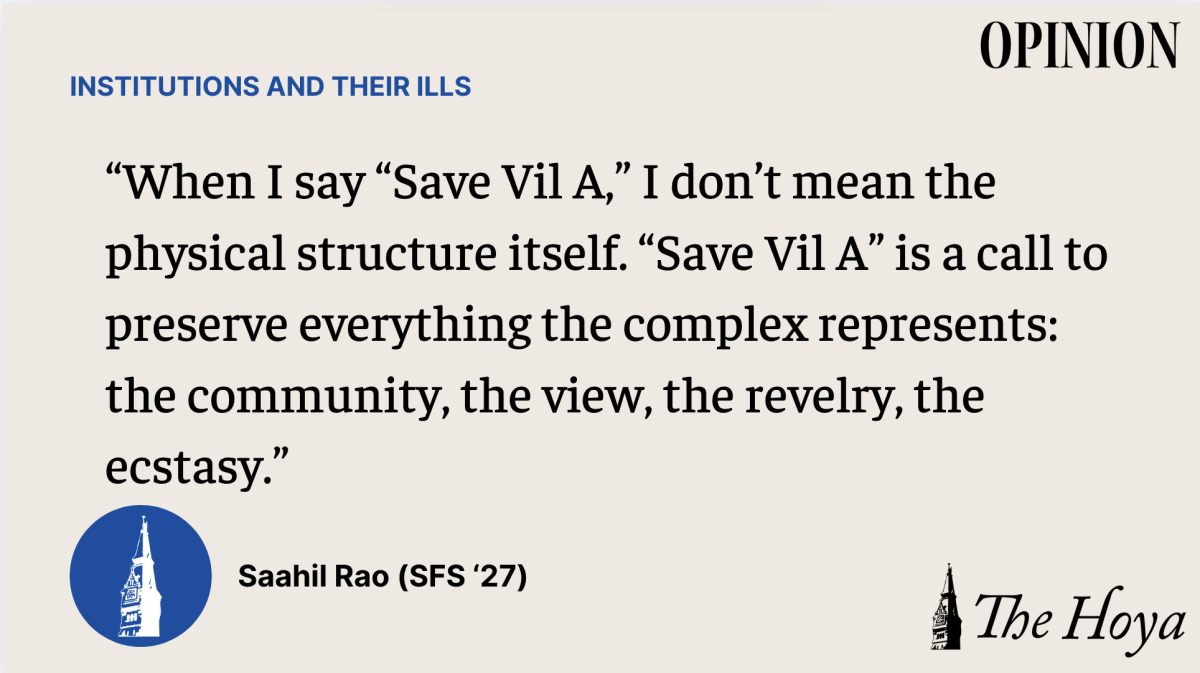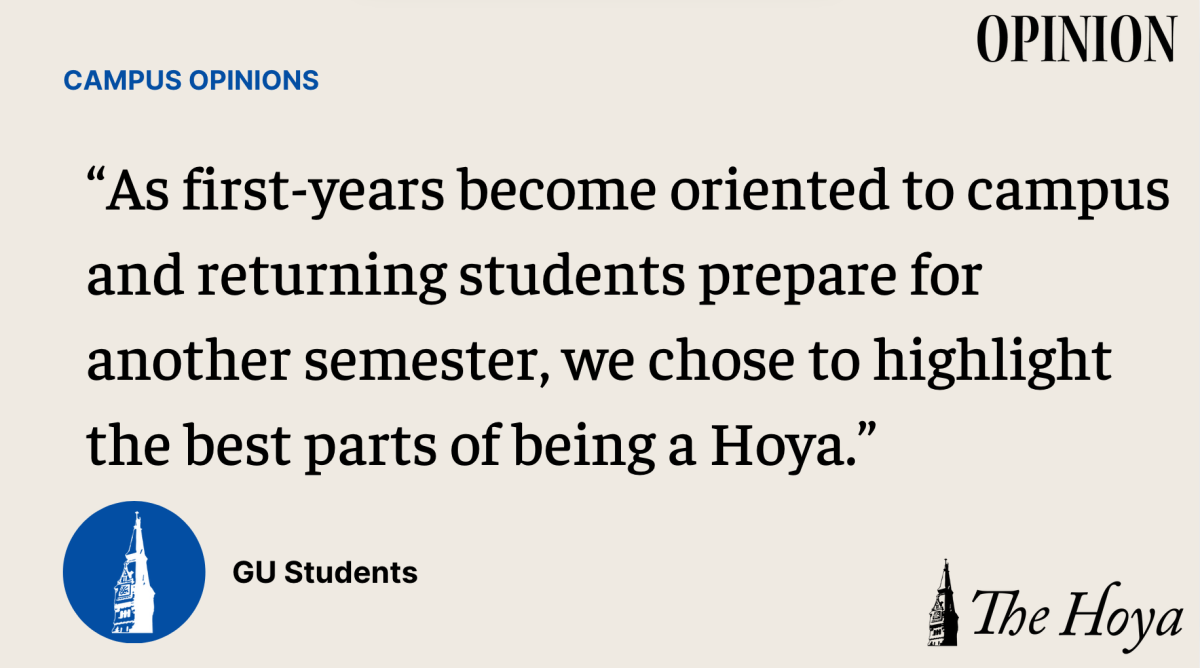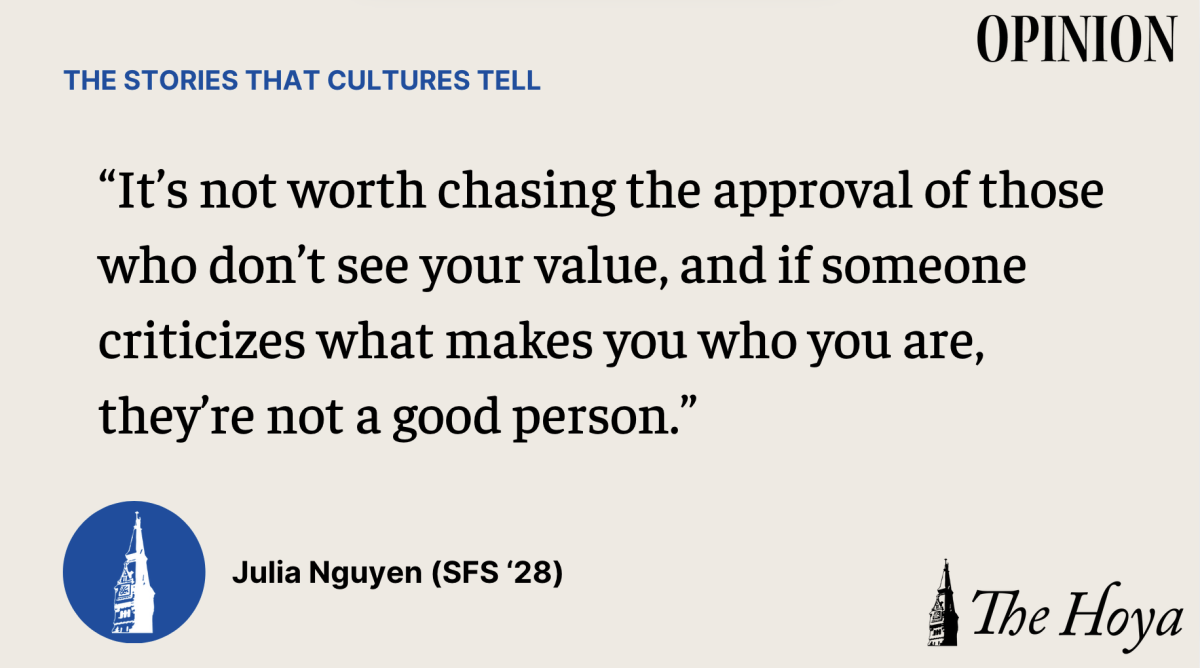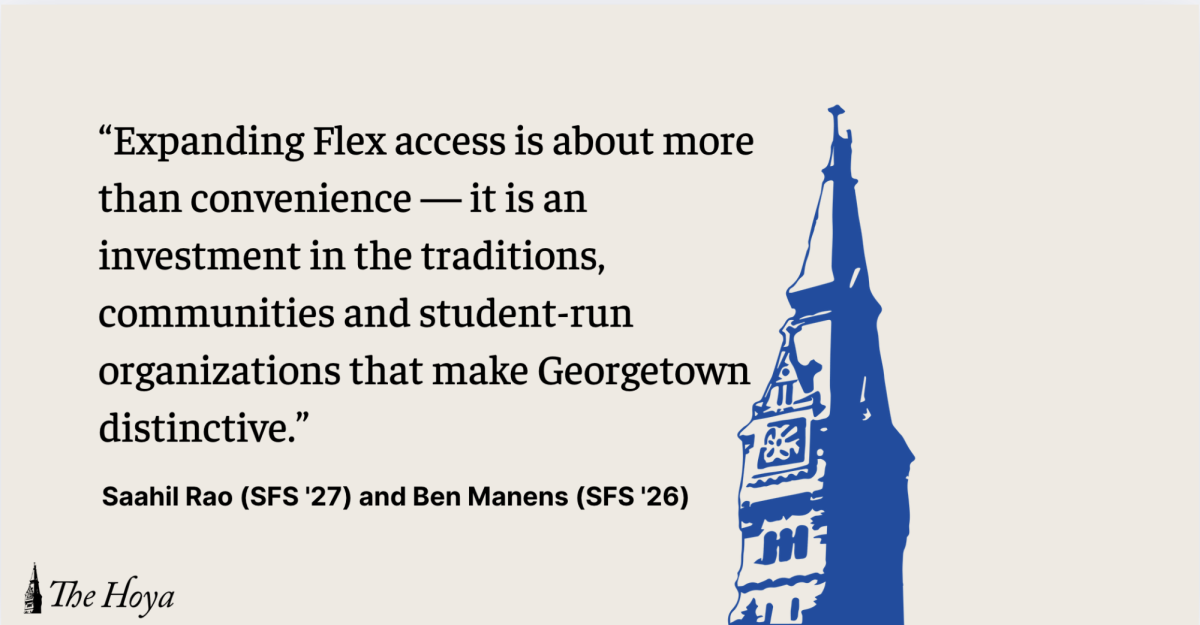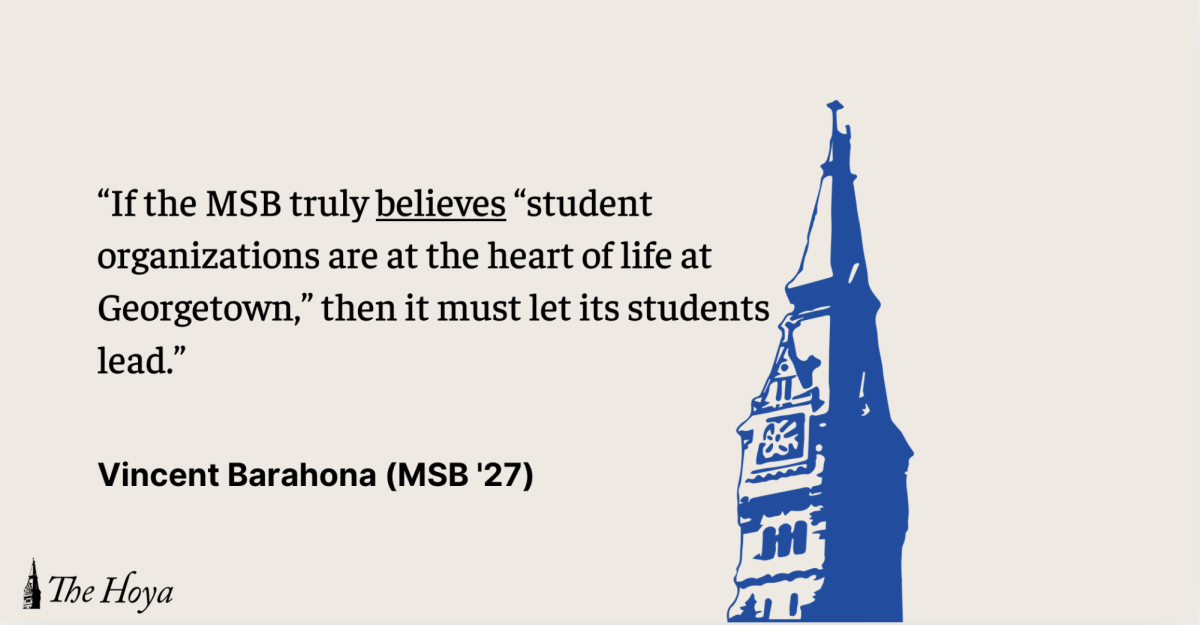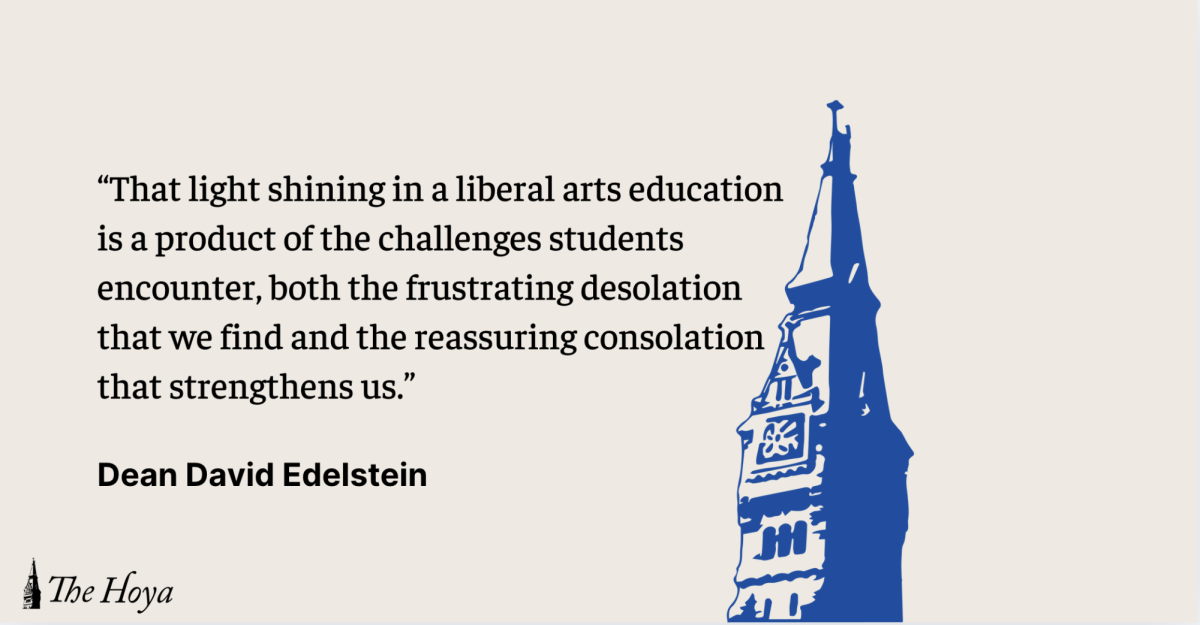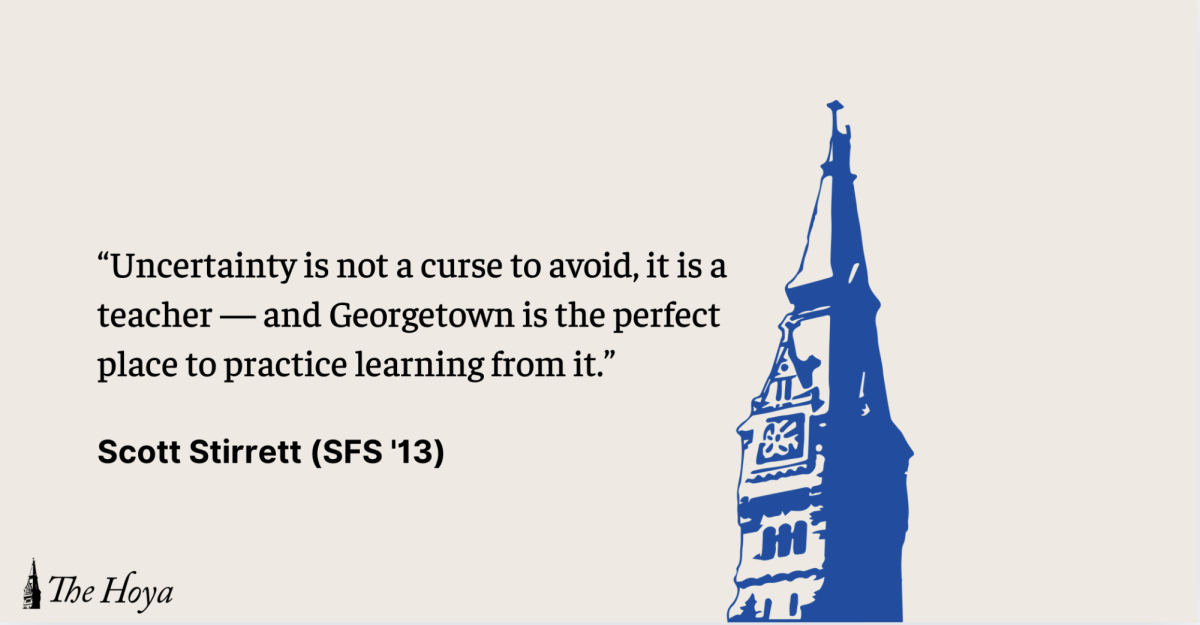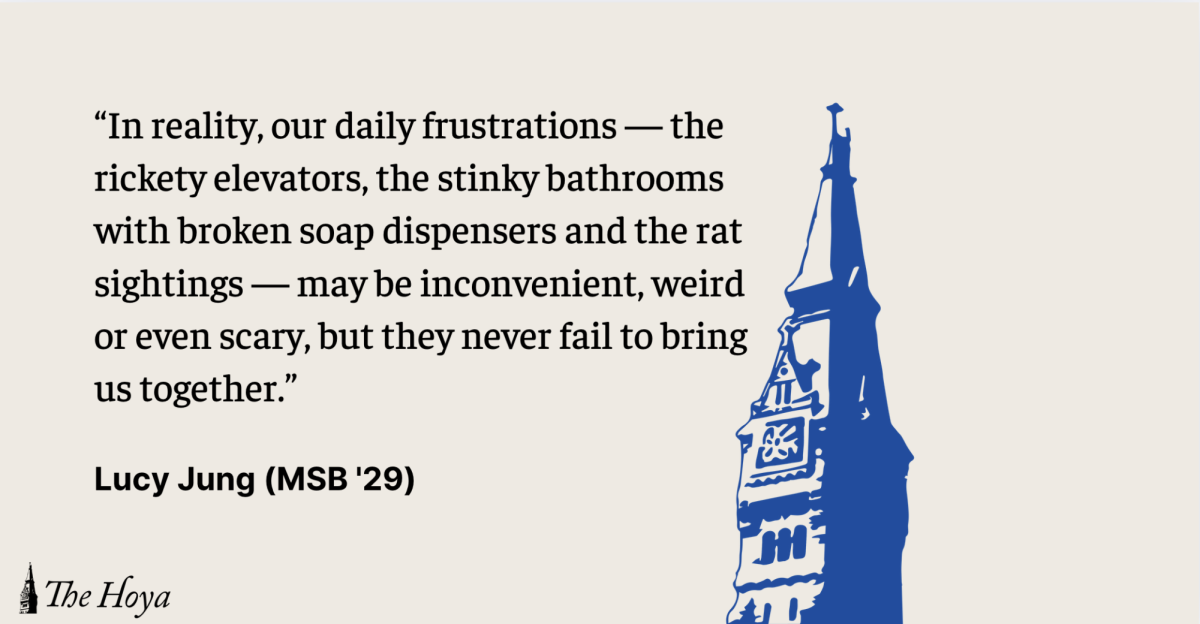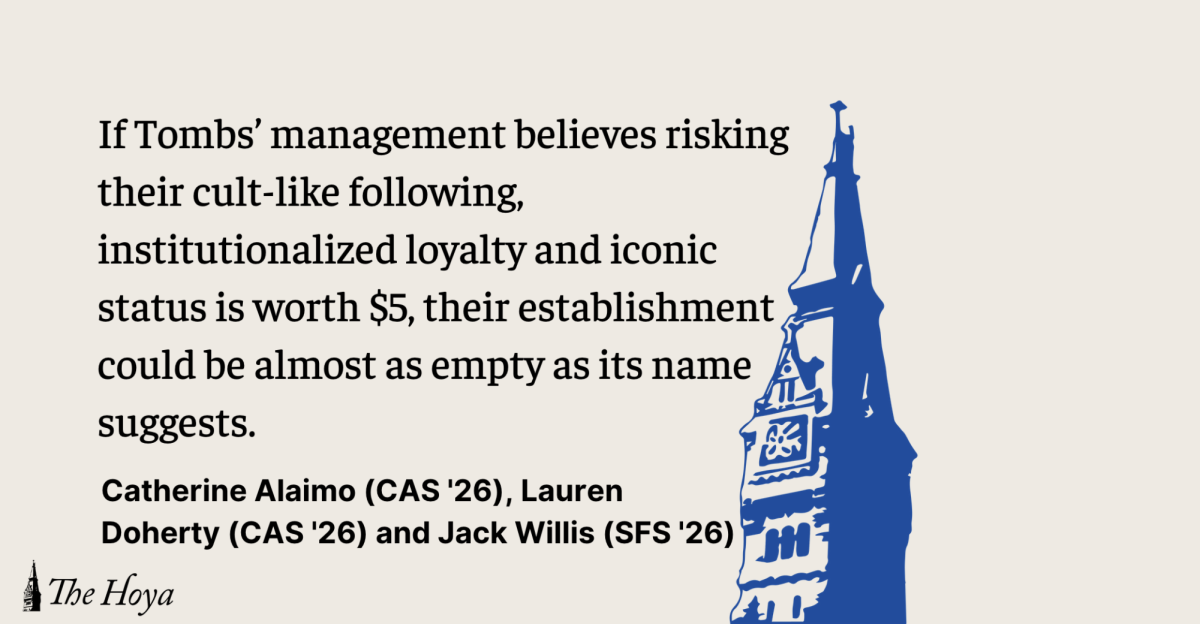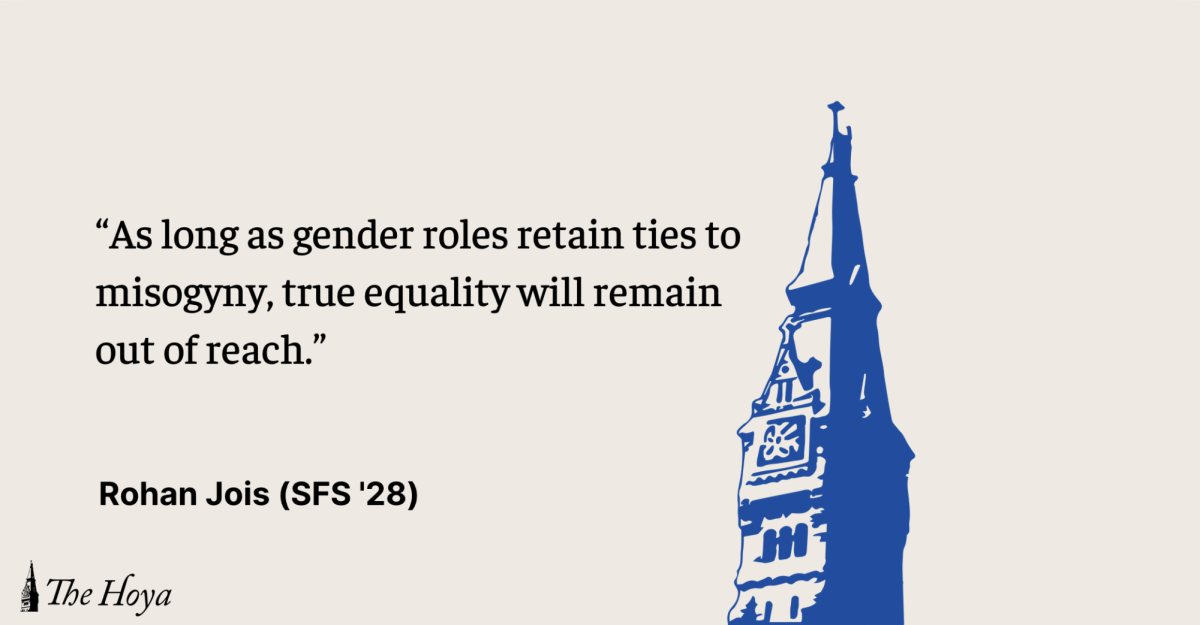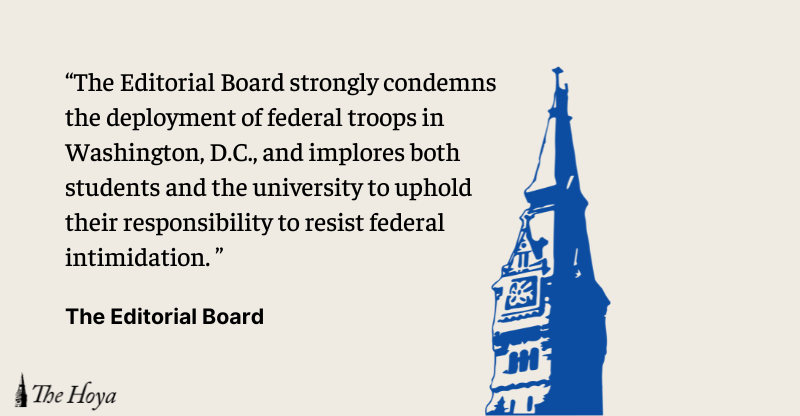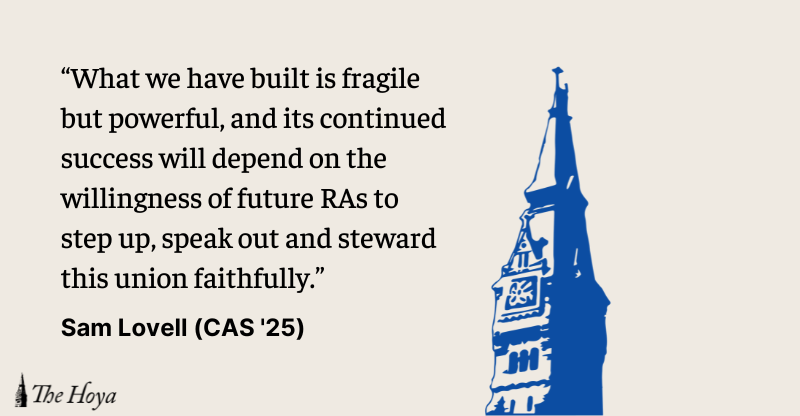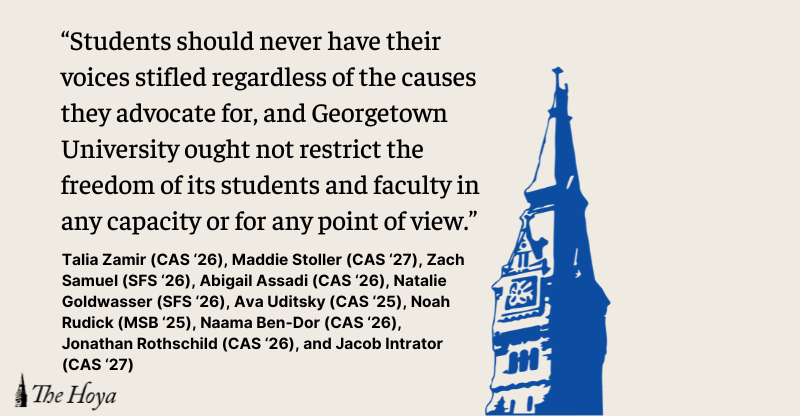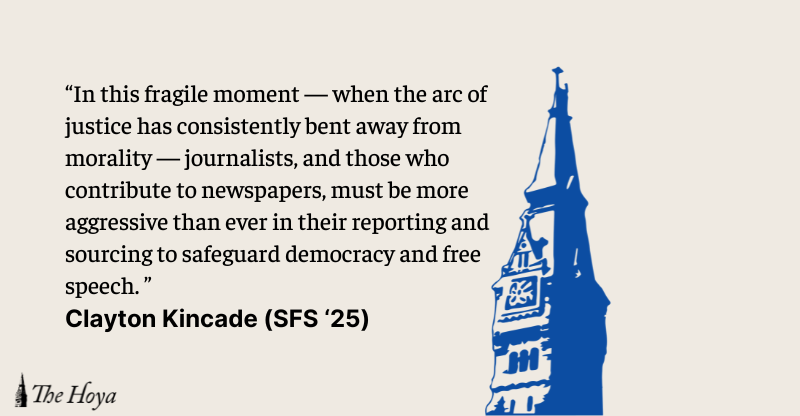I’ve been struck recently, walking around campus, by the appearance of a number of “Fight Fascism” posters. These posters, very rightfully lambasting Trump for deployment of the National Guard and his desire for “generals like Hitler had,” are each adorned with the tagline: “the fight against fascism begins on campus.”
Whether you agree or not that the country is descending into a state of proto-fascism, these posters are right. College students, both past and present, have had quite the role to play in such advocacy; examples range from literal battles on Madrid campuses during the Spanish Civil War to the recent Bangladeshi protests which led to the overthrow of Sheikh Hasina.
So, if the fight against fascism begins on campus, which Georgetown bodies and resources should be brought to bear in any potential conflict? Some immediate examples spring to mind — the QR code on these posters links to organizations such as Students for Justice in Palestine (SJP) and the GU Coalition for Workers Rights. Noticeably absent, especially after its recent organization of the Spring 2025 Israeli disassociation and divestment referendum, was Georgetown’s undergraduate student government — the Georgetown University Student Association (GUSA). As the current Speaker of the GUSA Senate, I would submit that such should remain so: GUSA is far from the best organization to be undertaking national political advocacy.
I offer that for two reasons. First, GUSA has limited time and energy that should be put towards a plethora of on-campus issues which it is uniquely suited to address. Second, there are plenty of other campus organizations targeted towards national political advocacy. Given GUSA’s unique duty and capability to solve on-campus issues, it should focus on them, leaving the national advocacy to other better-suited student groups.
The preamble of the GUSA Constitution begins as follows: “Students have a right to play a clearly defined and significant role in the formation and application of institutional policy affecting both academic and student affairs. A democratic student government is the best means by which this role may be played.”
The operative word here is institutional policy, the policy which it is GUSA’s responsibility to reform. And there is no question that an excess of these policies exist which currently act against student interests. Let me name a few from this summer and past year alone: 1) GUPD’s prohibitive security costs, 2) Residential Living’s refusal to extend GoCard access to Byrnes and Hayden Halls to off-campus seniors, 3) insufficient furniture in the HFSC, and 4) Hoya Hospitality’s refusal to replace the espresso machine at Whisk despite repeated employee requests.
One could go on and on, but the throughline is clear. These are niche institutional policies which have a disproportionate impact on students’ lives. It is here that GUSA, “as the sole official representative instrument of the undergraduate student body,” can act as a force multiplier, legitimately expressing student desire to a decision-maker primed to listen. It was through a petition led by two GUSA Senators and pressure from the GUSA Student Dining Committee that Hoya Hospitality eventually agreed to replace the espresso machine. It was only after combined Executive and Senate pressure that Student Centers agreed to purchase new furniture. GUSA can escape its do-nothing reputation only when it acts on issues within its expertise and jurisdiction.
While there is only one organization to advocate for the student body on niche institutional policy issues, there are plenty which are specifically suited to work on national issues. Regardless of whether one agrees with their advocacy, organizations such as Georgetown University College Democrats, one of the largest clubs on campus; Hoyas Against Legacy, which has led the fight to ban legacy admissions across all of D.C. through the city council; or Georgetown Students for Justice in Palestine, who organized an encampment with their sister organization from George Washington University, are action-oriented and have concrete records.
GUSA’s national record is relatively lackluster. Most notably (beyond the referendum), the GUSA Executive organized Hands Off Our Schools, a coalition of D.C.-area student governments to oppose President Trump’s education policies. To date it has organized one protest attended by about 200 people that, while attracting media coverage, did not halt Trump’s gutting of the DOE or his leveraging of university federal funding to force policy changes.
Now, it is of course unfair to expect any student government protest to singlehandedly convince the President of the United States to change his mind on cabinet-level policy. But organizing that rally and corralling six student governments to agree on a mission statement, set of speakers, etc., must have been an energy-intensive task. The point is not to condemn the intent behind the advocacy, but rather to show that the energy would have been better used on campus, where GUSA is chartered to make institutional policy change. We have enough problems as students just in regard to the Georgetown administration. Shouldn’t GUSA spend as much time as possible fixing what it can?
Ultimately, Georgetown’s student government should stick to what it was made for — Georgetown. Best to let others handle other fights.
Saahil Rao is a junior in the School of Foreign Service. This is the tenth installment of his column “Institutions and Their Ills” and the first of the Fall 2025 semester.


